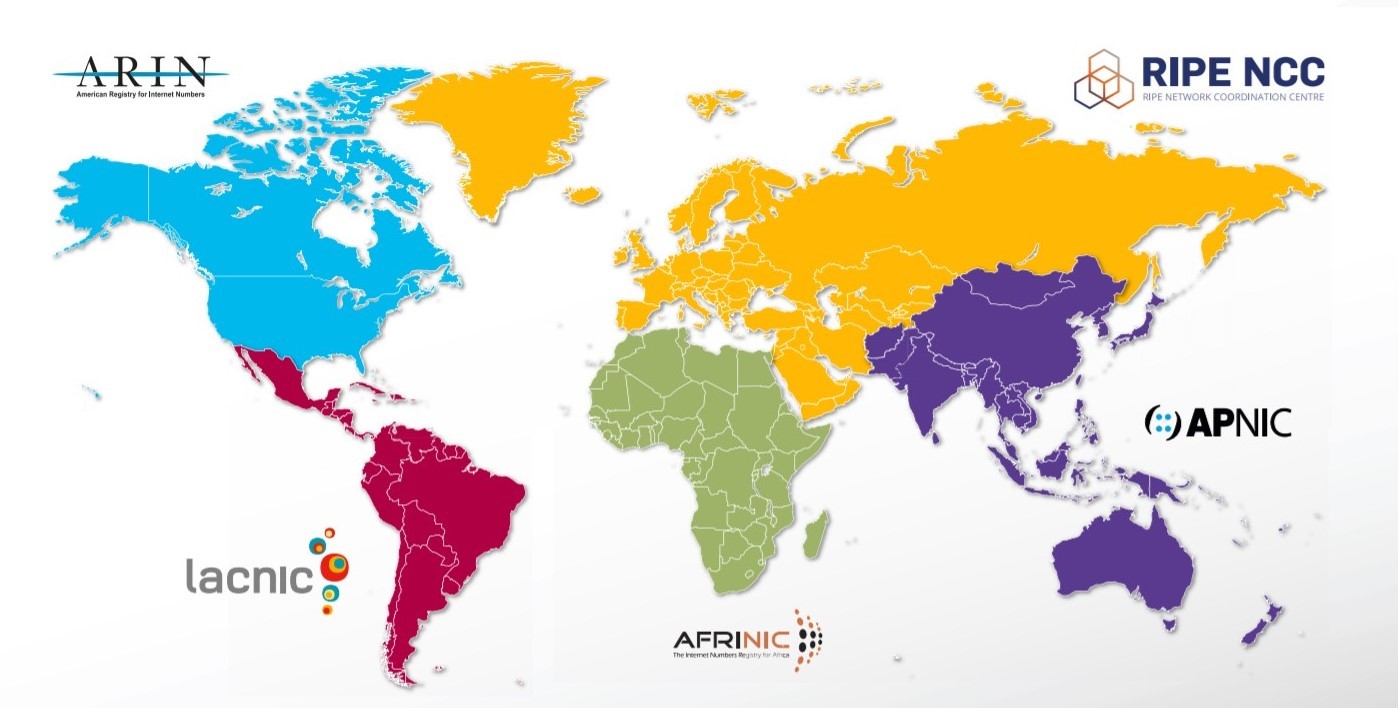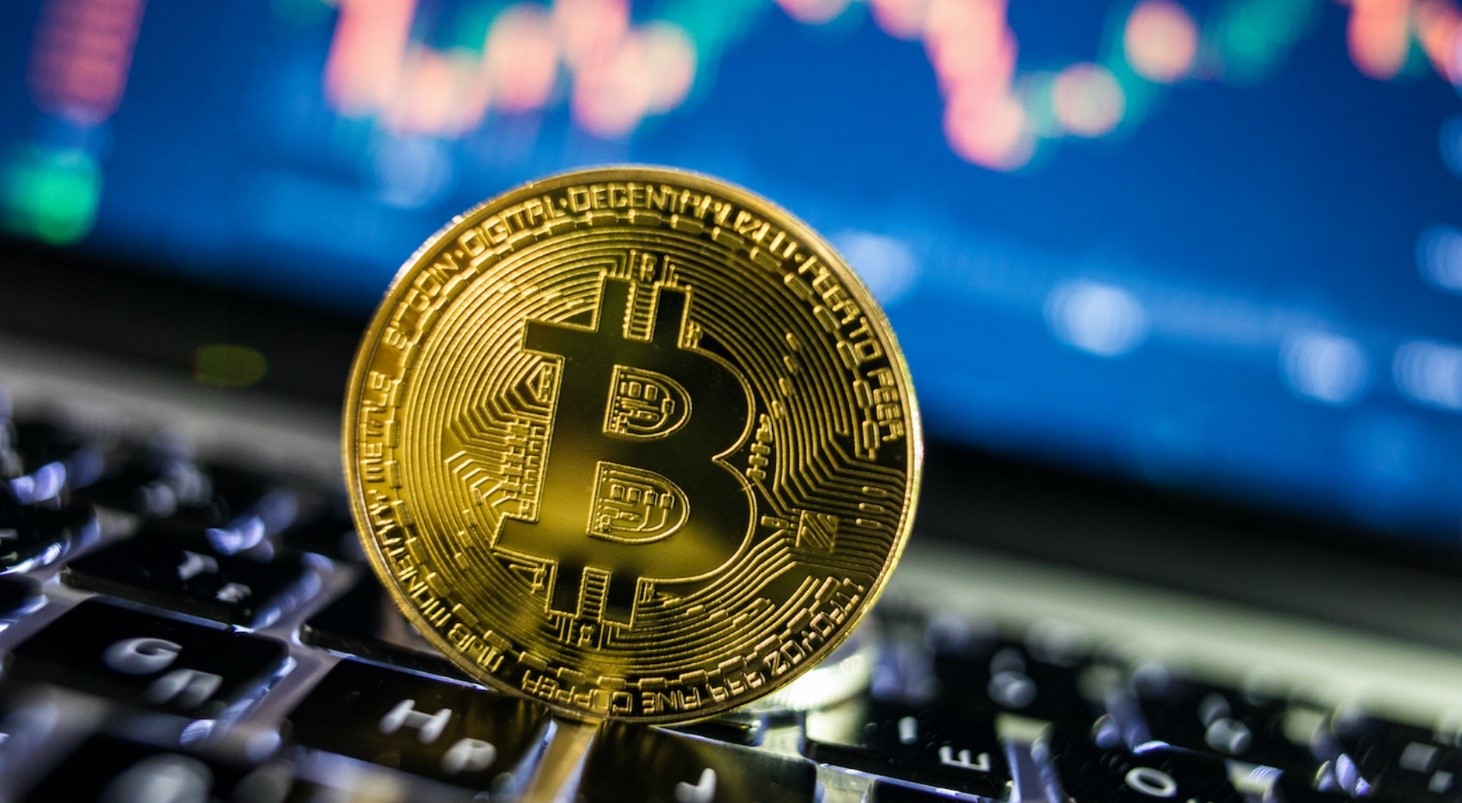However, what is behind the concept of an ip-address? Who exactly registers and issues them? Why the demand for them continues to grow exponentially and what happens when the latest IPv4 (the fourth version of the IP protocol) is used - we will consider the answers to these questions in our article.
What is an IP address and who is authorized to issue it?
An IP address (internet protocol address) is a unique set of numbers that identifies a specific device or user on a network. That is, in simple words, ip is the address of residence of a certain user or device on the Internet.
The right to allocate and register ip-addresses in the world is assigned to the non-profit organization Regional Internet Registry (RIR) . Today there are 5 Internet registrars, each of which is assigned a certain region of the world: RIPE NCC, APNIC, AFRINIC, LACNIC and ARIN.

In our region, IP addresses are allocated by the RIPE NCC, serving Europe, Central Asia and the Middle East. In the future, control issues in this area are transferred to local Internet registrars - LIR (Local Intenet Registry). They are responsible for allocating and registering ip-addresses at the local level. And already local Internet registrars assign ip-addresses to ordinary Internet users, such as you and me.
So why has there been a lot of talk lately about the end of IPv4?
The most common version of an IP address is IPv4, the fourth version of the Internet Protocol. After all, it is on it that the worldwide network works.
IPv4 uses 32-bit (four-byte) addresses, limiting the 4294967296 (232) address space to possible unique addresses.
So, in 1981, when the IPv4 protocol was just prescribed, it was believed that they would be enough for a lifetime. However, the reality is completely different. The introduction of new technologies, 5G, the development of the Internet of Things - all this has led to a rapid decrease in the number of IP addresses.
Therefore, on November 25, 2019, at 16:35 Kyiv time , the RIPE NCC issued the last block of IPv4 addresses.
So why are ip addresses the new bitcoin of telecom?
There is a lot of noise around both bitcoins and ip-addresses, but popularity and high demand are not the only things that connect them.

IP addresses are based on the TCP / IP protocol, and the "cue ball" is often called the bitcoin protocol. This is because the cue ball is also based on a protocol, but cryptographic. And this means that there is something in common in the very essence of the creation of these technologies.
Also, the number of IPv4 is limited, in fact, as well as the number of bitcoins (the maximum number of bitcoins that will ever be issued is 21,000,000).
Well, the most common characteristic for both technologies is the issue of pricing. At the beginning of the creation of both ipv4 and bitcoins, their price was equal to a penny. In 2009, the price of 1 bitcoin was $ 0.000763, almost the same price for IPv4. But today the cost of both technologies has risen significantly and the issue of pricing has become unregulated.
Why did it happen? And how has the limited supply of IPv4 affected their price?
Recently, the rapid development of the IT-component of the world has led to the depletion of IPv4 stocks. Today, each of us uses IPv4 in large quantities. And now we are talking not only about the ip-address of the router that distributes wi-fi in our homes. For example, the “smart home” system is now widespread. So, performing any action with a sensor (for example, turning on a warm floor using remote access) also requires an individual IP address. After all, without knowing the ip-address that is assigned to this sensor, you simply cannot do this.
That is why it became clear that IPv4 is "not forever" and one day companies and ordinary Internet users will have to switch to the next generation Internet protocols - IPv6.
By the way, also a very interesting topic is the issue of prices for IPv4 and how they have changed over the past 5-10 years. As the demand for IPv4 increased, so did the price for them. And the issue of pricing has become unregulated today.
Since it is impossible to directly purchase IPv4 from the RIPE NCC, because the last address was issued last year, bankrupt companies, telecom operators that closed their LIRs, as well as users who no longer need IP addresses purchased earlier, became the source of IPv4 supply.
And the most interesting thing is that if 10-15 years ago IPv4 cost almost "a penny" or they were given out for free at all, today the prices are becoming almost cosmic.
If in 2017 one IPv4 cost about $ 6, last year the cost increased to $ 10, then in 2020 the price already starts from $ 15-25. for one IPv4. While IPv6 costs $ 0.4.
What exactly is the difference between IPv4 and IPv6, and what difficulties can a company face when switching to a new version of the Internet protocol?
The traditional notation for an IPv4 address is as four decimal numbers (0 to 255) separated by a period. That is, the address length is 32 bits (an example of an IPv4 record is 172.16.255.2). If we calculate all possible IPv4 options, then their total number will be 4,294,967,296. It would seem a lot, but almost all of them have already been used.
An IPv6 address is eight 16-bit hexadecimal blocks, separated by colons. Its length is 128 bits (example of IPv6 -2001: 0da8: 11a4: 08d6: 1f84: 8a3e: 07a1: 655d.)
That is, all possible IPv6 options are countless. Experts say that there are even more such variations than there are atoms in the universe. But despite this, many are in no hurry to switch to IPv6.
So, according to Google,only about 24% of users connect to the company's search resource via IPv6 . And such a slow transition is associated with certain technical difficulties.
“Firstly, in some cases it will be necessary to replace equipment (in this case, routers). So, IPv6 was created in 1996, but there are still routers that do not support this protocol. Second, it can take a long time to build a separate IPv6 network. For example, at SIE Worldwide Studios, a group of video game development companies, the implementation of the IPv6 Project has been going on for 7 years. And also sometimes companies will have to switch to different software.